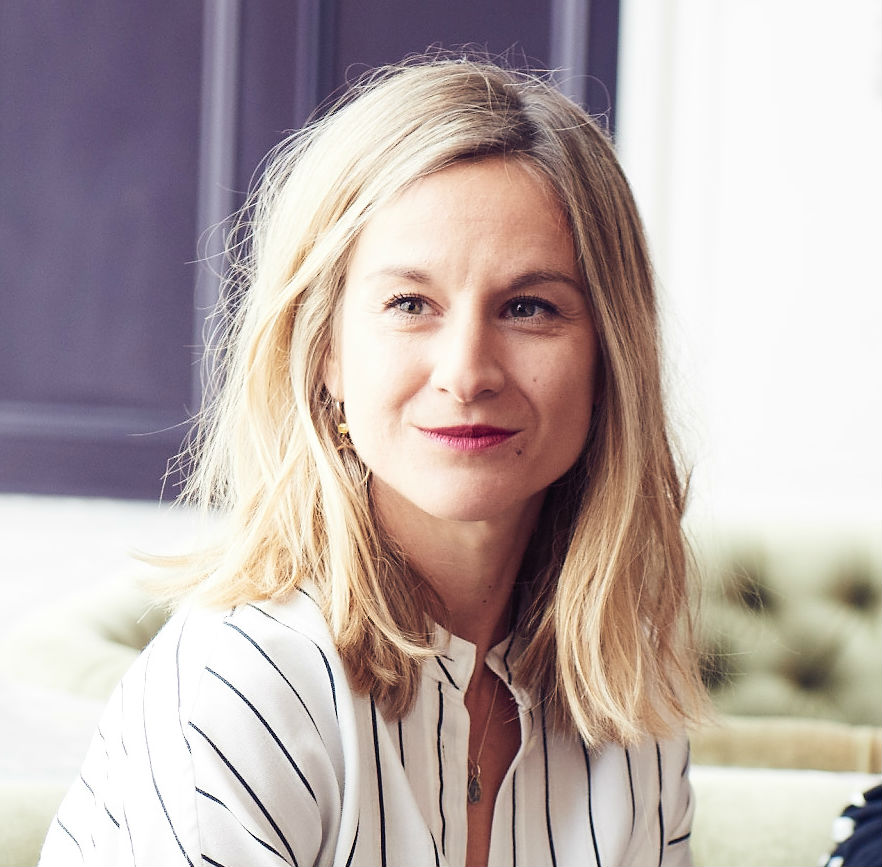Introducing the alpha girls of Silicon Valley
When power dressing means a vintage Facebook T-shirt and dating is strictly online, what’s life like for women in the ultimate tech Mecca? Alexandra Wolfe reports


When power dressing means a vintage Facebook T-shirt and dating is strictly online, what’s life like for women in the ultimate tech Mecca? Alexandra Wolfe reports
Words by Alexandra Wolfe
When I first met 22-year-old Laura Deming, she had just arrived in Silicon Valley and was realising that being female here was different to the East Coast. ‘Someone told me I was dressing like an idiot, because I was parading around in a bunch of teenager-style dresses from college without thinking about how I looked,’ Deming remembers. ‘The advice was basically to lose the skirts and start wearing blazers and stuff.’ She followed the advice for the most part, tossing out anything delicate, lacy or detailed, which could make her appear weak, but she kept the miniskirts and a pair of combat boots.
I was in California to research my book Valley Of The Gods. The state spawned 23 new billionaires in 2015 and is home to a quarter of America’s ten-digit club, so competition in California is fierce – and the Valley’s race to create ‘the next Facebook’ is fast and palpable. On the surface, it may appear that nobody tries too hard – the tech ‘uniform’ of tomboy hoodies, backpacks and sneakers is a far cry from the heels and power suits of the New York banking scene – but the signifiers of wealth are still there, you just have to look closer.
Designer handbags and brand logos are a no-no, replaced instead by tech company emblems or slogans – preferably Facebook, Google or Apple. The earlier in the company’s history the T-shirt is made, the better – 2005 is almost nascent, for instance – because that would signify how wealthy you could indirectly say you are.

Wearing a Facebook T-shirt made in 2007 is a stronger status symbol than driving a Ferrari, since the car costs about $150,000, while an employee at Facebook in 2007 could have made tens of millions of dollars after the IPO. Some men wear Steve Jobs’ favourite New Balance sneakers to prove that they have something in common with the tech master.
Walking through Mountain View, Sunnyvale or Palo Alto in a dress is akin to getting ready for the prom at noon – you are labelled an East Coast tourist or a costume-party guest. The less cutesy, feminine and frilly you can be as a Silicon Valley woman, the better; proving that you’re not a slave to stereotypes of sexuality is essential. Jeans are typical for both sexes. Women’s can be loose or tight, but trousers are a must. Skirts are only OK if they have pockets or resemble construction-type attire, showing one’s toughness. If a lady wants to feel and look attractive, it should be through fitness, rather than an expensive dress.
Celebrity news, beauty, fashion advice, and fascinating features, delivered straight to your inbox!
Weekend pursuits in the Valley aren’t about long brunches, but high-intensity workouts or cycling trips around Woodside. The focus is on keeping the body and mind fit – and certainly for a lot of men, the goal is to look young. The ethos is ‘the younger the better’, and one guy in his thirties admitted to me that he stayed thin to look more youthful.
The lacklustre of the tech wardrobe extends to dating, too. Many coders found that Silicon Valley was a sexual wasteland at first. Men, who make up roughly 60 per cent of the population, are too busy coding to do anything else. When they are in ‘flow’ (racing against the clock to build a program before the next person does) nothing else matters. Unlike the testosterone-fuelled bankers on the East Coast, their sexual rage doesn’t come out in boozy pool parties, but on late-night online ‘dates’, if they are lucky.

In the offline world, there is nowhere to go after 10pm on Palo Alto’s minimal bar scene. Rumour has it that at one tech conference on a boat, women were hired in from a Miami university to pretend to be tech students and redress the gender imbalance.
For single women, the most desirable men are employees number five, six and seven of the big tech companies. One day at University Café, a popular hangout in Palo Alto, I saw a girl point to a guy ahead of her and squeal, ‘He was number five!’
Women commonly hook up with younger men, because they are the wealthy ones, having grown up as early-stage employees at the main tech giants. Single women prey upon them at places like the Rosewood Sand Hill hotel in Menlo Park.
The über-go-getting cabal of Silicon Valley females working in tech and venture capital worship some women and despise others – often the more feminine ones eclipsed by their husbands. As a result, many of the married women never talk about their partners.
Deming never felt out of place when she was the only woman at a party or in her house, which she once shared with six men. But she recounts stories of women around her who were angry about the gender imbalance. These women complained that a lot of men were in fact ‘beta’ (read: weaker), while women were ‘alphas’, especially those who followed Facebook COO Sheryl Sandberg’s Lean In ethos that encourages women to take control of their careers. One in particular resented the perceived notion that women should act like they could play with the boys.

One night, in 2014, sitting in jeans and a T-shirt outside on the deck behind the Rosewood, Aileen Lee, a partner at influential venture capital firm Kleiner Perkins Caufield & Byers (KPCB), told me: ‘People are racially sensitive and disability sensitive, but they’re just not gender sensitive. I mean, the Tinder situation?’ She was referring to Whitney Wolfe, the Tinder co-founder who sued the company for sexual harassment in 2014. The case was ultimately settled, and Wolfe left the company to start Bumble, a competing dating app, that same year.
Then there was Ellen Pao, the KPCB partner who had charged the venture capital firm with gender discrimination in 2012. Pao famously claimed she was routinely passed over in favour of male partners, excluded from men-only company ski trips, and subjected to harassment from a male colleague. Pao lost her case in 2015, but she opened up a conversation about gender equality in Silicon Valley.
Lee started her own firm, Cowboy Ventures, in 2012 to seed early-stage companies that improve daily life through technology. She argued that women shopped online and played more social games than men. She saw them as responsible for the success of many tech companies. Lee now believes that Silicon Valley has made some improvements in its attitude toward gender – in part because of the dust-up over Pao. ‘The number of women in venture capital has actually decreased in the past decade, but the awareness and sensitivity has improved in the past five years,’ says Lee. ‘If you look at tech companies, they are starting to report their diversity numbers publicly. Women are the routers and amplifiers of the social web, and they are the rocket fuel of e-commerce. If you figure out how to harness the power of female customers, you can rock the world.’ As a result, companies have been forced to treat women better, both as employees and customers.
To Deming, the so-called promised land of Silicon Valley felt like a place of contradiction – fierce ambition disguised as casual demeanour and loose definitions of fidelity, people married instead to their ideas. The buzzword was to ‘hack’, so everybody sought out ways to appear as ‘other’, as a disruptor to the norm, despite their samey appearance. Here, Deming realised, she could be whoever she wanted.
